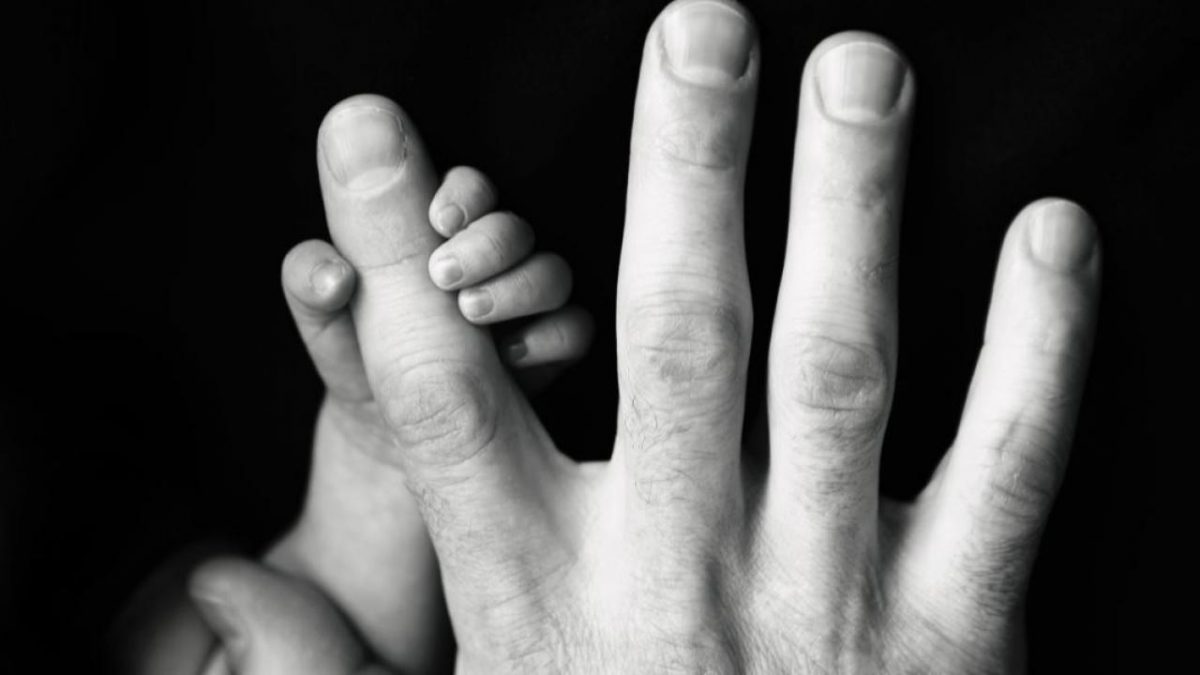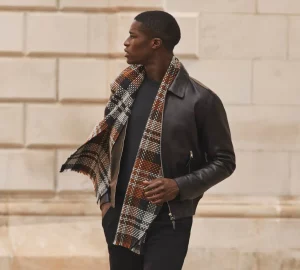The most dangerous phrase in the English language is “be a man”. To be a man today, says film-maker Jennifer Siebel Newsom, is to fight for success and sex, to reject empathy, and to never, ever cry. The result is depression, anxiety and violence.
Siebel Newsom’s first documentary, Miss Representation, explored the way the media contributes to the under-representation of women in power, and premiered at the 2011 Sundance Film Festival. When she was touring with the film she was pregnant with her second child, a son. And as she discussed the need for positive female role models, she inevitably heard from audiences asking: “But what about the boys?” Some $100,000 of Kickstarter donations later, she premiered The Mask You Live In. It has just arrived on Netflix, a fast edit of men talking wearily, and boys confused; an attempt to speak to what she calls the “boy crisis”. As a child, one young contributor says quietly, he used to have a group of close friends. Now he’s a teenager he struggles in “finding people I can talk to… because I feel like I’m not supposed to get help”. “If you never cry,” says another, “then you have all these feelings stuffed up inside you and then you can’t get them out.” In this film, Siebel Newsom calls for a whole new masculinity.
If you never cry, then you have all these feelings stuffed up inside you
The day I spoke to her, I passed three boys sitting at a bus stop. One was describing how gorgeous his wife would be when he grew up. “She’s going to be so hot… and I’m going to cheat on her like crazy.” At 42, Siebel Newsom has recently given birth to her fourth child with husband Gavin, former mayor of San Francisco, current lieutenant governor of California, and the man best known for greenlighting same-sex marriages long before US courts had sanctioned the practice. She deftly juggles our interview with her son’s insistent attempts to pull her away to play – what this means is she gets to the point. When she started researching, she found boys were more likely than girls to be diagnosed with a behaviour disorder, more likely to be prescribed stimulant medications, more likely to binge drink, more likely to be expelled from school, and more likely to commit a violent crime. At university entry level in the UK, women outnumber men in two-thirds of subjects. Three to four times as many men take their own lives than women; men aged between 20 and 49 are more likely to die from suicide than any other single form of death. “Knowing all this,” says Siebel Newsom, “and being pregnant with a son, I knew that not only did I want to make sure he didn’t become one of those statistics, but that I had to help change this culture for everyone.”
It’ll take more than a film, she admits. Her nonprofit organisation, The Representation Project, works alongside the films, campaigning to challenge stereotypes. The most persuasive element, though, is Siebel Newsom herself who, in her previous life as an actor, was told to remove her Stanford MBA from her CV because it was “threatening”, but who still has that actorly skill of talking in a way that will make people listen.
Experts link the repression of growing up male with mass shootings and murder
In one scene in the documentary, a teacher gives a group of boys each a piece of paper. On one side they write how they are seen by other people, and on the other what they are feeling. Then they scrunch it up and throw it into the circle. On the outside of all the notes were words like “tough”, “fearless”. Inside, “lonely”. It’s with awkward agony that one boy rests a hand on his friend’s shoulder as he cries into his fists. The shock comes with the realisation they all feel the same. Experts swiftly link the repression required when growing up male with mass shootings and murder, which makes the film particularly poignant today. But while Miss Representation featured talking heads like Gloria Steinem, Jane Fonda and Condoleezza Rice, there are no recognisable faces in her second film. She pauses when I ask why. “It was largely because they didn’t exist,” she says. “Men are not speaking publicly about these issues.” The implication is that their silence is part of the problem.
Is masculinity really a mask? The film is compelling – her experts in neuroscience, psychology, sociology, sports, education and media are obviously knowledgeable and passionate – but the idea that the manliness they discuss is purely cultural isn’t questioned. In Time magazine, Christina Hoff Sommers (author of two “meninist” books about boys) worries Siebel Newsom is less concerned with helping boys than with “re-engineering their masculinity according to specifications from some out-of-date gender studies textbook”. She suggests talking about emotions might have less “value” for boys, that men’s stoicism is protective. She says the film is misleading, giving the impression that boys are severely depressed, stating contrasting figures showing clinical depression is much lower than in girls. Hoff Sommers’s most persuasive suggestion is that instead of simply critiquing masculinity, Siebel Newsom’s first objective should be to help mental health services to adapt to better meet the needs of men, conditioned or not : to harness that competitiveness, aggression, to reflect the energy back and use them for good. To defeat an enemy, like Captain America with his reflective shield.
But perhaps that’s next – Siebel Newsom says this is just the beginning. Since premiering the film, she sees the results of the boy crisis everywhere, from misogynist responses to Hillary Clinton’s campaign to the recent Stanford University rape case, where the father of an athlete convicted on multiple charges of sexual assault said his son should not have to go to prison for “20 minutes of action”. “The way the father and the judge protected that young boy showed again how we privilege white males and star athletes,” says Siebel Newsom. “As a society, we need to take a real look at that and recognise the damage that is being done when we continue to privilege those classes, those communities, and blame the victim.”
After screenings, Siebel Newsom says men approach her, crying. “There were men in their 70s saying, ‘That was my life.’ Men in their 20s and 30s who’d tell us they no longer feel so alone. And men in their 40s who have children who go, ‘OK, I’ve got to raise my own sons differently.’” She was moved. “That is where we have to inspire the good men, the brave men, the courageous men, to stand up to those who are trying to belittle them. We’re not going to move the needle on gender parity, on violence, until we have more men entering the conversation and using their platform to support those of us who are trying to do good.”
When making the film, she says she was taken aback. “What really surprised me was how pure and gentle and confused boys were,” she says. “How they felt so much pressure to become someone they felt they weren’t. ‘I don’t want to date girls, I just want to be friends with them’; ‘I don’t know why I only have to play football.’ It’s in those school years where they start feeling this need to disconnect, and you see the pain, anxiety, the alienation that results from them denying their true selves. It’s heartbreaking,” she says.
I hear her son calling for her again. “Because, at the end of the day,” she adds, “nobody wins.”
Matthew Ryder: ‘My dad’s notion of being a man was flexible’
When I was growing up, my father’s explanation of ‘being a man’ could be bewildering. ‘It’s not about what sex you are,’ he would say, before adding even more confusingly, ‘Your mother can teach you more about being a man than anyone I know.’
Eventually I understood. Unlike many fathers in the 1970s, his concept of being a man was not the opposite of being feminine or emotional. It was the opposite of being childish and immature. It meant having the courage to face your fears and responsibilities, but also not being afraid of your emotions or weaknesses. It was about being a trusted friend and an equal partner.
He could have just said ‘be a good person’ rather than ‘be a man’. But it wouldn’t have had the same effect. He knew that, as a boy, I would one day be interacting with the rest of the world as an adult male – a man. I was going to have to understand what that meant in my dealings with women, with other men, and with society as a whole. If he did not give me a positive identity of what it was to be man, he knew that one of the many negative ones would quickly fill the vacuum. He was giving me an identity that would prepare me for life.
Over the years, that identity grounded me through my successes and failures. It also meant that, despite my youthful love of hip-hop, reggae and sports, I was never really seduced by the cartoonish, misogynistic versions of manhood –black manhood, in particular – that they often offered. It inoculated me from the worst excesses of testosterone-fuelled nonsense.
My father’s notion of being a man was also flexible. As I grew from a child of the 70s to an adult of the 90s, it grew with me. I learned that sometimes a man should back down from a fight; that real men are also feminists; and that not being seen as a ‘sissy’ is meaningless, while not being homophobic is important.
In a modern, gender-fluid world, is the notion of being a man still relevant? Are we not all just people? Yes and no. The philosopher Jerry Cohen wrote: ‘There is no way of being human, other than a way of being human.’ Being a man is one of those ways.
Erwin James: ‘Cowboys were real men. They never cried’
If my father had asked me when I was six years old, ‘What does it mean to be a man, son?’ – I’d have smiled broadly and said: ‘cowboy’. I was never happier than when I was sitting on his knee watching westerns like Wagon Train and Rawhide on our tiny black-and-white TV.
My father was cowboy mad and so was I. After I said my prayers for all the people I loved, my mother had to wait until I was in bed and fast asleep before she could gently relieve me of my beloved cowboy suit. Cowboys were real men. They were tough and they never cried.
But when my mother was killed in a road crash less than a year later, I cried. My father had to be cut from the wreckage and, when he came home, I cried again. In place of my funny, loving, playful dad was a grieving, selfish, violent drunk. He beat the women he lived with and he beat me. I loved him still, but learned to hate him just as much. The care home I was sent to at 11 was full of boys like me. No aspiring train drivers or astronauts among us – we told each other that, when we grew up, we’d be gangsters and crooks. No crying allowed.
Horatio Clare: ‘Being a man is being kind when frightened’
When we are boys, we believe we must study Dad and be like him. I had the great fortune of a lovely father who was rarely observable: my parents divorced. Watching him was a hopeless guide anyway. He had ‘problems’, according to Mum, and he married four women before he settled down. But he is kind, peaceable, slow to anger, very funny, and skilled.
I was quite funny but otherwise hopelessly unlike him. I loved speed, spending, girls and guns. Over the decades of my ‘manning up’ I accrued convictions for arson, taking without consent (car), ditto (boat), ditto (milk float) and all sorts of decorations for dope. Change my background and I would have been a suicide bomber. No question.
You could apply the same criminal record to my relationships with women. Not in the manner of loving them, for I think I am gentle, too, but in the leaving. Porn, piracy, hijack, honeytrap: in my pursuit of love I have committed and been had by all these. And the frightening thing is, however special I thought I might be, in my teeny ravings, which are ongoing in the male part of my lizard brain, I’m not. The blindness testosterone causes accounts for much, we know, and being a man is being blind, ‘sand-blind, gravel-blind’ as Shakespeare had an old man say, and frightened. That’s the job, I think – to be kind when blind and frightened.
The only teacher I had, really, who lived with the knowledge she would watch us go wild into a wild world, was my mum. Her favourite birds are wood pigeons, which handle relationships with a religious purity, so it follows that a good man, to her mind, is a good pigeon: alert for crumbs and shoots, devoted, on watch but not panicked, and given to singing the same song as his partner. If he has one.
And he does. We all do. Like good sailors, we boy-men have our shipmates and all the world to help us, in this ‘man’s world’, this tramp ship in time and space. The rules of seafaring, I think, are: smile, work hard, trust in the Lord/Lady and remember – the sea is equal to all men, and no man is equal to the sea.









